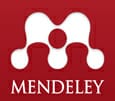Business Model Innovation for Non-formal Education Service at High School Level: A Case Study of OPSI Tutoring Center
Main Article Content
Abstract
This study examines business model innovation in the non-formal education sector, focusing on OPSI Tutoring Center. Using a case study approach with mixed methods, data were collected through interviews, observations, and institutional documents, analyzed using the Business Model Canvas (BMC) and SWOT analysis. Findings show that OPSI has a strong value proposition through outcome-based programs, but faces challenges in distribution channels and income stability. The SWOT analysis highlights opportunities for hybrid learning models, digital expansion, and strategic partnerships. Strategic recommendations include improving customer interaction, strengthening internal evaluation, and integrating digital technology in operations and marketing. This research provides practical insights for innovation strategies in Indonesia’s non-formal education sector, supporting institutions in navigating digital transformation and achieving sustainable competitiveness.
Article Details

This work is licensed under a Creative Commons Attribution 4.0 International License.

International Journal of Business Studies by Sekolah Tinggi Manajemen IPMI is licensed under a Creative Commons Attribution-ShareAlike 4.0 International License.
Authors who publish with this journal agree to the following terms:
1. Authors retain copyright and grant the journal right of first publication with the work simultaneously licensed under a CC BY-SA Creative Commons Attribution-ShareAlike 4.0 International License that allows others to share the work with an acknowledgement of the work's authorship and initial publication in this journal.
2. Authors are able to enter into separate, additional contractual arrangements for the non-exclusive distribution of the journal's published version of the work (e.g., post it to an institutional repository or publish it in a book), with an acknowledgement of its initial publication in this journal.
3. Authors are permitted and encouraged to post their work online (e.g., in institutional repositories or on their website) prior to and during the submission process, as it can lead to productive exchanges, as well as earlier and greater citation of published work.
4. Copyright Transfer Agreement Form can be downloaded HERE.











